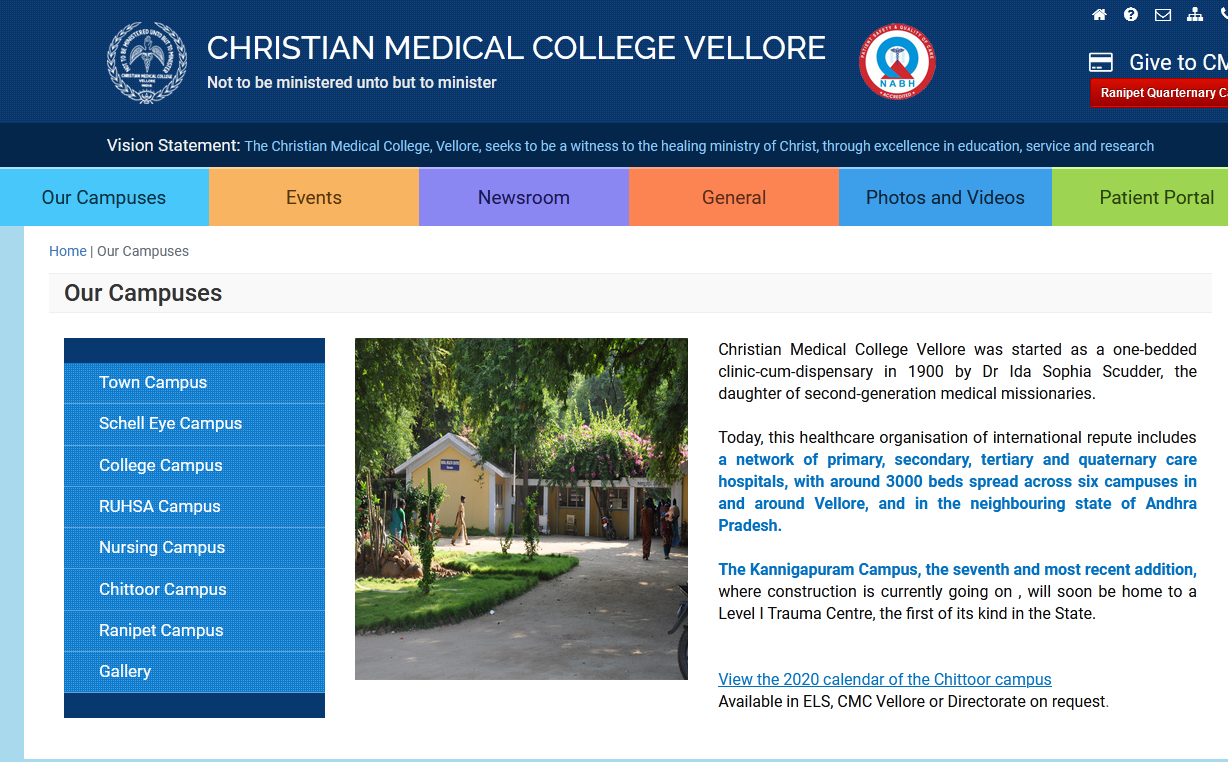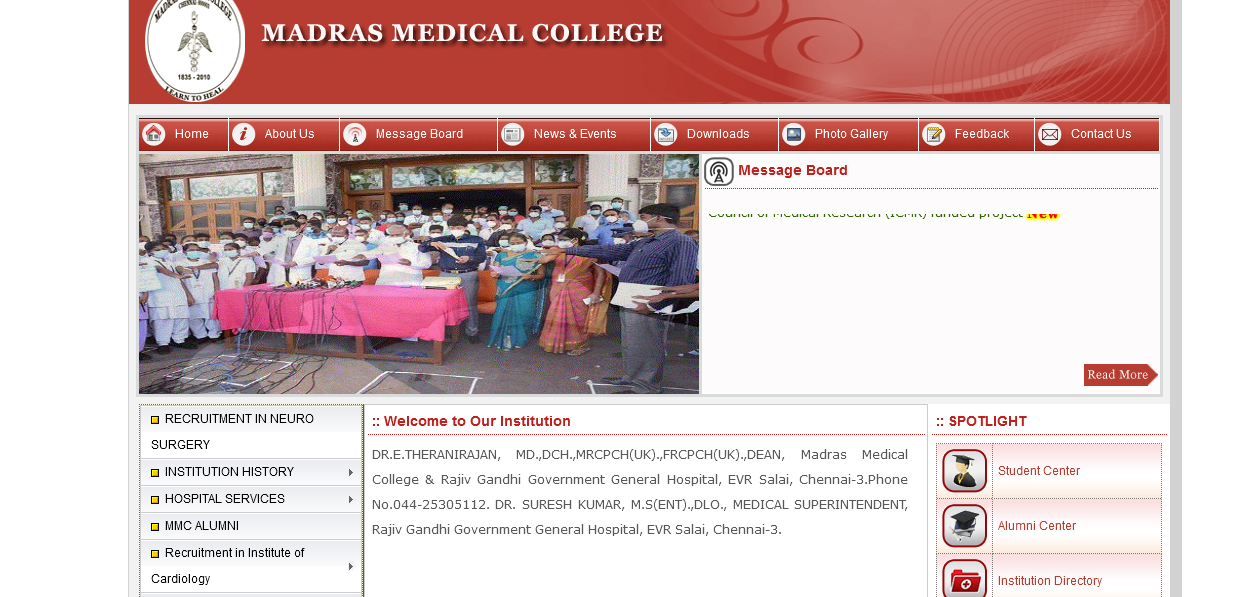Christian Medical College, Vellore

The General Public are CAUTIONED not to be lured by any person offering admission to any of the courses conducted by CMC. The college will not be responsible for any candidates or parents dealing with such person / persons.
Civil and a criminal court proceeding will be taken up against any person who holds out promises and also uses the institution’s intellectual properties.
PLEASE NOTE: WE DO NOT ADMIT STUDENTS THROUGH AGENTS OR AGENCIES.
CMC Vellore Administration
- Read more about Christian Medical College, Vellore
- Log in to post comments
- 81 views




